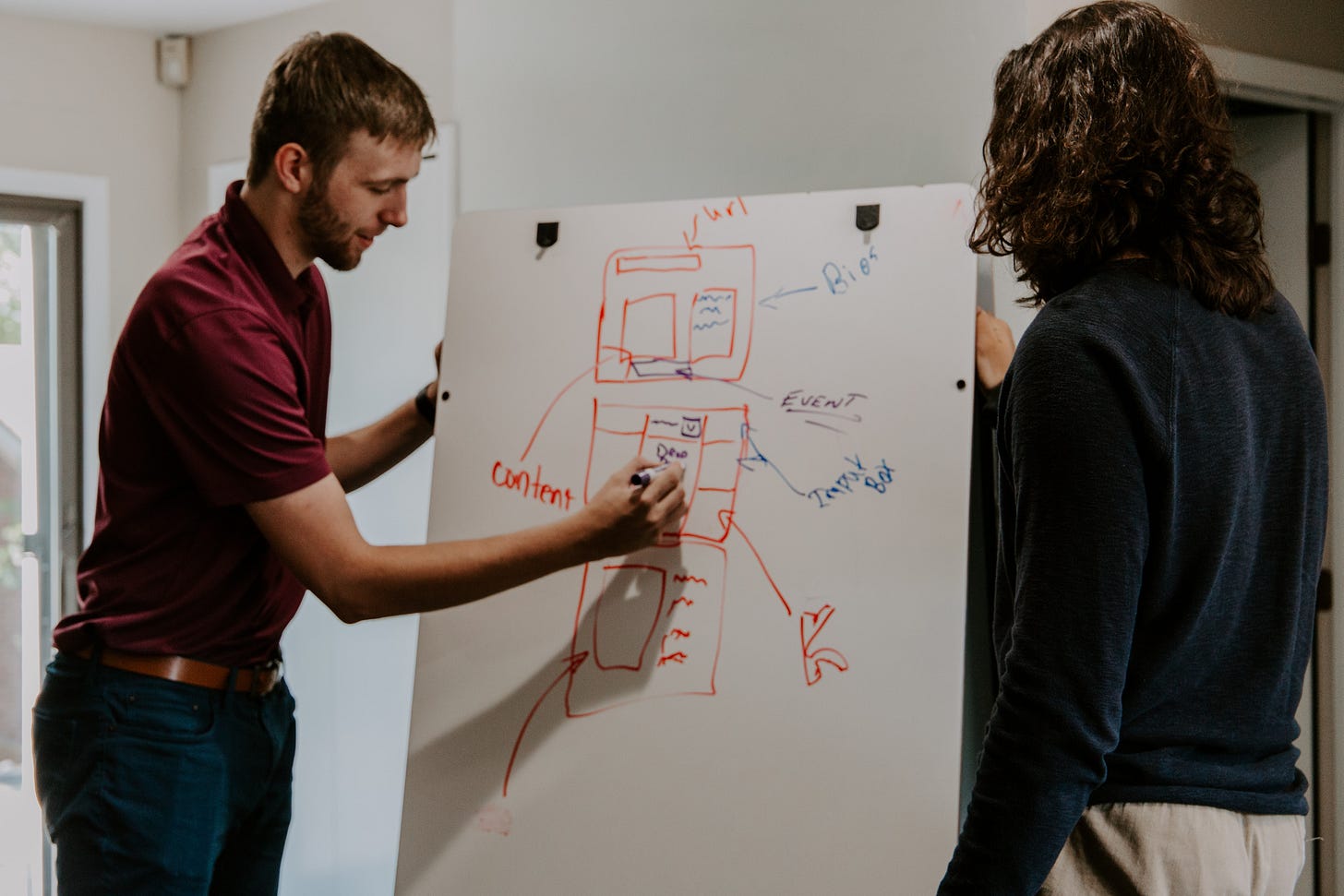From Discourse to Dialogue
Unfinished, unfinalized thoughts on the terminology of talk
When I began my doctoral program in January 2020 (fortuitous moment, I know), we were asked to brainstorm some problems of practice that particularly intrigued us. I’d been doing a good bit of work around teacher professional development and learning, facilitating sessions around the science of reading and high quality instructional materials. In the preparations for delivering those trainings, we’d meet as facilitator teams, review the materials, preview and forecast potential misconceptions or sticking points, and attempt to prepare ourselves for addressing those moments, clarifying understandings, and pushing further to desired outcomes.
Talk moves—as I’ve discussed here a few times before—were an important part of our approach; an approach which also required lots of intensive listening from the facilitator’s point of view, navigation of the positionally and situational realities of teacher training, and a nuanced typed of responsiveness that communicated respect and compassion to educators, but also a measure of accountability toward learning and changes in practice.
So, some of my first draft questions revolved around teacher professional learning, teacher collaborative talk, and the efficacy (or inefficacy) of professional learning with regard to shifting teacher beliefs and practices. Quickly—or at least it seems that way in my malleable memories—I settled around the terminology of “teacher collaborative discourse,” mostly with the touchpoint of Adam Lefstein’s excellent scholarship. Since then, though, I’ve been immersed in theoretical frames of “dialogue”—specifically those of Bakhtin and Nikulin.
Now I’m wondering: What’s the difference between discourse and dialogue? Let’s take a moment to compare and contrast definitions of “discourse” and “dialogue”:
Definition of discourse
1: verbal interchange of ideas
especially : CONVERSATION
2a: formal and orderly and usually extended expression of thought on a subject
b: connected speech or writing
c: a linguistic unit (such as a conversation or a story) larger than a sentence
3: a mode of organizing knowledge, ideas, or experience that is rooted in language and its concrete contexts (such as history or institutions)
Some things that stick out for me here: “interchange,” the idea of the “formal and orderly,” this sense of a “linguistic unit,” and finally the hint at a “mode of organization.”
Definition of dialogue
1: a written composition in which two or more characters are represented as conversing
2a: a conversation between two or more persons
also : a similar exchange between a person and something else (such as a computer)
b: an exchange of ideas and opinions
c: a discussion between representatives of parties to a conflict that is aimed at resolution
Some things that stick out here for me: “written” being the first word of the first definition; the emphasis (as above) on “conversation”; the idea of “exchange.”
I’m tempted here to draw similar dichotomies as I’ve done before—between writing and speaking, or between dialectic and dialogue, or between literacy and orality. In a conversation (dialogue? discourse?) with my advisor for the dissertation last week, we talked about differences between the everyday, colloquial use of “discourse” and the scholarly use of “discourse.” A Twitter friend has helped me out tremendously with getting a lead on excellent scholarship on the trajectory, use, and scholarship surrounding as amorphous of a term as “discourse.”
I’m tempted, again, to claim the primacy or superiority of “dialogue” to “discourse,” partly from a personal, subjective sense that dialogue connotes a more interpersonal, everyday connection while discourse connotes a scholastic and academic realm. I’ll be working over the coming weeks at distinguishing these two, with an aim to support educational leaders with interfacing with teachers in an accessible, everyday vernacular. Perhaps I’ll have to, next, reckon with the uses and positives of binary or dualistic thinking. I’m interested to hear your thoughts on the differences and similarities of dialogue and discourse.


